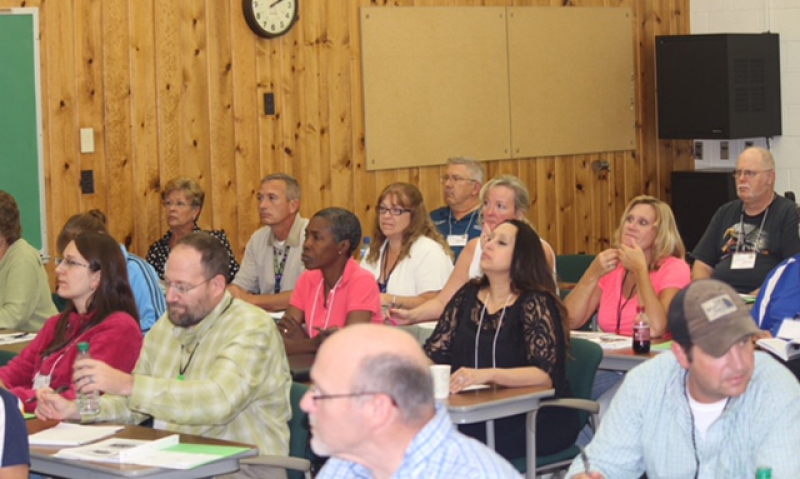
An 18-person team uses state funding to help veterans track down benefits, bringing $75 million back into state this year.
Editor’s note: This is the first of a weekly series of Department Spotlight stories featuring unique programs and initiatives of departments throughout The American Legion. Department adjutants are invited to recommend subjects for their departments by emailing magazine@legion.org
A World War II veteran had been denied VA benefits for hearing loss after he left the service in 1947. Last summer, at age 92, he decided to try again, seeking out help from a unique program run by The American Legion Department of Michigan.
“He came back and wanted to file a claim for a hearing loss again,” said Gary Easterling, director of the department’s Veterans Affairs and Rehabilitation Division. “We started digging in to it where we saw that he filed that initial claim, we had to try to go back and find his paperwork from 1947. But we found it and my office personnel did a great job in tracking this down and doing all this and then they found out that there was a clear and unmistakable error in the initial claim when they did it.”
The end result: the veteran received $725,000.
“It was amazing,” Easterling said. “It was only 10 percent, but then you add that up with the cost of living increase and with 10 percent, over 80 years, it’s been amazing.”
While that is an extreme case, it’s an example of how Easterling and his 18-member staff assist veterans, thanks to a fund created by the state legislature in 1921.
Originally, the state legislature’s Michigan Patriot Fund was to help families of soldiers that were overseas but after the war that was no longer necessary, explained public relations director Mark Sutton. “Legionnaires went and persuaded the legislature to give them roughly $220,000 a year, in 1921 money, to help the veterans coming back receive benefits and to also help them get jobs and help them with any of their needs that they needed,” he said, noting that VA had not been created yet.
That funding continues today, with the state allocating grants worth $3.7 million, including $800,000 for the Department of Michigan. “I believe we’re the only state that the state gives a grant to for specific veterans service organizations for veteran service work,” Sutton said.
Easterling oversees four service officers in the Detroit regional office, eight field service officers, four claim consultants and two support staff. “We’re kind of unique because with those 18 employees, I can reach out to every county in the state, which is 83 counties. So we have offices set up where veterans can come to us, we rotate. I have a lot of ‘windshield time’ for my field guys, but they go to different locations everyday throughout the state.”
And for veterans who cannot make it to one of the field offices, the Michigan team will make a house call.
Since last Oct. 1, Easterling’s team has recorded 4,183 claims that have been awarded by the VA, bringing back $75 million into the state in VA benefits. “That money is coming right back into the state,” Easterling says. “Tax free going right back into the communities.”
Larry Money, the department commander, is a proponent of the program.
“It’s a great program that we have in Michigan,” Money said. “Our veterans service organization has been getting a few accolades for what we do, what has transpired, the benefits we’ve tracked down for our veterans in the state of Michigan.”
The department also runs a service officers school at an annual three-day retreat at Higgins Lake.
“We invite basically anybody from the state or outside the state that wants to come and learn about veterans benefits,” Easterling said, noting that nearly 150 people have signed up for this year’s school, which is this coming weekend.
Post and county service officers are split into two groups where they receive specific training.
“We teach them the rules and coded procedures,” Easterling said. “We teach them how to do their jobs and how to be effective in their communities. How to reach out to their different organizations in the community to get their veterans help. We get more in-depth with the claims process and the appeals process. We really teach them on how to do things. It’s a dynamic school.”
- Membership

